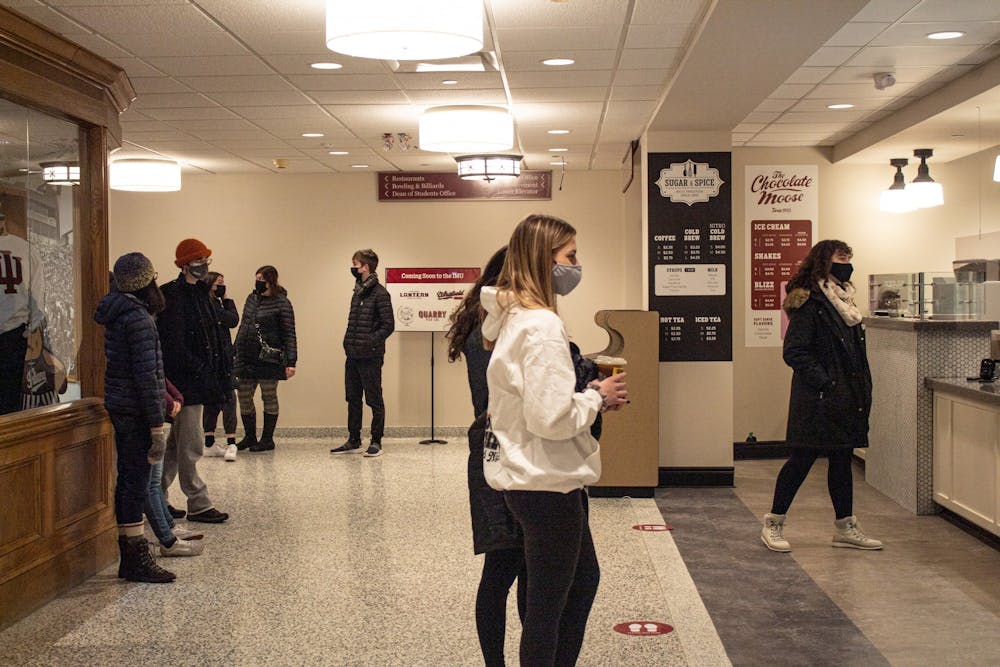My social media feeds display the extremes of Americans’ experiences with the COVID-19 pandemic. On Twitter, I read heartbreaking horror stories of irreversible pain and loss. On Snapchat, I see joyful college students spending their nights out at bars or restaurants with their friends.
Life changed abruptly for IU students when campus and dorms shut down last March. Reflecting back, the pandemic strained our relationships with others and our sense of community.
Our ways of relating and being with one another has changed. We have to radically change how we see our communities as well.
How some ignore COVID-19 safety guidelines is selfishly individualistic at a time when thinking of the whole is essential. To overcome the pandemic, we must make a radical change to put the group over the individual.
IU opened in August primarily online with some in-person and hybrid instruction, like many other colleges. Even so, students moved back to campus with or without full in-person instruction. Their return can be a key factor for community spread in cities such as Bloomington, according to a New York Times analysis.
College students — who may not realize their own privilege in coming back to Bloomington — must take on more responsibility for their actions.
[Related: OPINION: As in-person classes begin, we must remember the pandemic isn’t over]
Cecilia Sanchez, a sophomore studying exercise science, said healthy young people won’t face many consequences for contracting the virus, but that doesn’t mean they still shouldn’t be careful.
“That’s kind of not a good thing because then it can turn into a selfish issue,” Sanchez said. “They do not understand it’s not like that for everyone and you can still spread it.”
Bloomington had a vibrant nightlife before the pandemic. However, some Bloomington residents’ actions show the city’s nightlife continues, paying little attention to the welfare of the community’s more vulnerable populations.
Binding students to COVID-19 safety guidelines is not to say others can act without consequence. Every part of the Bloomington community needs to be responsible to one another.
This includes how IU communicates with the students it invited back.
“I wish the university would put out a thing saying that it’s recommended to wear two masks now,” Sanchez said. “We are of course spread out and there’s not that many people in a room, but I wish they would take that little step.”
The Centers for Disease Control and Prevention recently reported that double-masking, or wearing a cloth mask over a surgical mask, could better protect against COVID-19. The most recent IU student COVID-19 email update, sent Feb. 10, said nothing about double-masking.
Bloomington has limited in-person gatherings to 15 people. Statewide, the gathering size restriction has a limited percentage of building capacity instead of a number amount. There’s still a risk of community spread. Abiding to these guidelines, but still not socially distancing or wearing masks, cannot be an effective way to reduce COVID-19’s spread.
[Related: Read our coronavirus coverage here.]
We have to act together as a community to protect our most vulnerable, especially right now. We have ignored that responsibility so far.
Sanchez said Bloomington most visibly fails to do this in its treatment of people experiencing homelessness.
“Not only it being a pandemic and them being very high risk, but it being winter and taking their tents away and making it hard to give them resources is not showing that they are a good community for everyone right now,” she said.
In countries such as New Zealand, the government and community worked together to stop the spread and could lift COVID-19 restrictions momentarily. However, New Zealand also recognizes the necessity of restrictions when needed.
We have not achieved even a fraction of what New Zealand has because we only seem to think of convenience for ourselves and not what is best for the community. The COVID-19 pandemic will not go away until we look at our community more holistically.
Evan Shaw (he/they) is a sophomore studying journalism. He also minors in Arabic and Spanish and hopes to one day become a polyglot.






